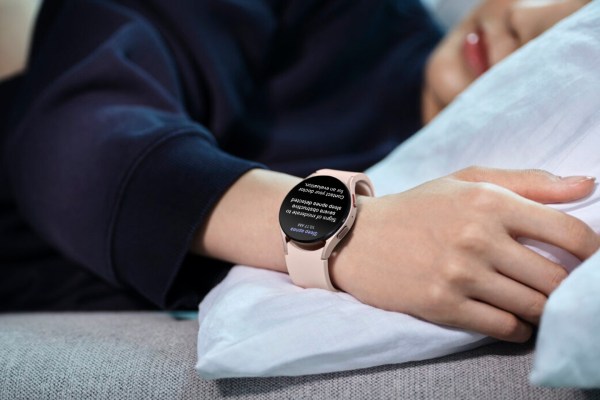ARTICLE AD

Samsung this morning announced that the Galaxy Watch line has received FDA approval for sleep apnea detection. The move is a big one for the smartwatch category, where health and fitness now comprise a majority of new features. For the last several years, the industry has focused on heart monitoring and blood oxygen detection, as it’s looked for the next big thing.
Non-invasive glucose monitoring is an oft-floated possibility. That would certainly be a game-changer for millions living with diabetes. Obstructive sleep apnea (OSA) is a widespread problem in its own right, with around 39 million Americans living with the condition, according to the National Council on Aging.
Globally, that number expands to 936 million — a huge figure for a potentially deadly condition. Worst still, most people who have it have not been diagnosed. The American Academy of Sleep Medicine puts that figure at up to 80% of those affected.
OSA is the more common of two varieties of sleep apnea (along with central sleep apnea). It finds the sleeper’s upper airway blocked, thus restricting breathing. It can increase the likelihood of developing conditions including type 2 diabetes, heart and kidney failure, high blood pressure and stroke, among other conditions.
“The sleep apnea feature will enable users over the age of 22 who have not been diagnosed with sleep apnea to detect signs of moderate to severe obstructive sleep apnea (OSA) over a two-night monitoring period, a common and chronic sleep condition that often goes undiagnosed and untreated,” Samsung writes. “To utilize the feature, users will be able to simply track their sleep twice for more than four hours within a ten-day period.”
The Galaxy Watch isn’t the first consumer product to promise sleep apnea tracking. Withings’ quite good Sleep pad also offers the functionality. Toward the beginning of the pandemic, the French company also announced a watch featuring that functionality.

 9 months ago
56
9 months ago
56 

